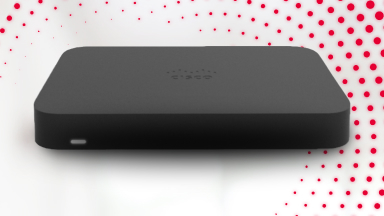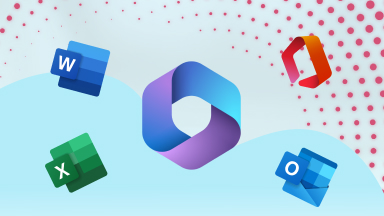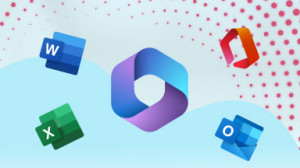ePLDT continues to build its digital educational tools to help schools improve quality of learning
Products & Services
Business solutions built to drive growth and keep you connected — we’re committed to your success.

Featured Product
Fiber Internet for Business
Power your business with PLDT Beyond Fiber — reliable, MSME-ready internet for office, remote work, and more.
Learn More
Business Internet
High-speed and reliable business internet solutions—from fiber to 4G/5G and satellite—designed to keep your business connected anytime, anywhere.
Private Networks
Connect your branches, global offices, and cloud platforms with fast and private networking solutions.
Next-Gen Networking
Modern networking made simple—flexible, cloud-ready, and built for growing businesses.
Mobile Plans & Devices
Flexible mobile plans and premium device options tailored for businesses of all sizes—plus tools to manage prepaid load distribution and keep teams connected on the go.
Wireless Connectivity
Fast and flexible wireless connectivity for your business—no cables, just seamless internet.
Voice Services
A full suite of voice services designed to enhance business communication—from hotlines and VoIP to conferencing and contact centers.
Workplace Productivity
All-in-one productivity suites that streamline communication, file sharing, and teamwork across your organization.
Messaging & Engagement
Streamline business communication and customer interaction with enterprise-grade messaging tools that support real-time updates, alerts, and engagement across teams and audiences.
Network Security
Comprehensive security that defends your network from viruses, malware, and other digital threats.
Endpoint & Cloud Security
Advanced threat protection for endpoints and cloud platforms to keep your business data safe and compliant.
Cloud and Web
Safeguard your websites and applications with trusted SSL certificates and robust DDoS protection.
Authentication and Fraud Prevention
Verify users silently and securely through Smart’s network—eliminating manual input and reducing risks like phishing and credential theft.
IoT Connectivity
Enable real-time monitoring and control of smart devices with a secure and flexible IoT connectivity solution.
IoT Solutions
End-to-end IoT solutions for tracking assets, digitizing workflows, and optimizing operations with real-time insights.
Featured Product


Satellite Internet
Elevate business capabilities with low-latency, high-speed internet with extensive coverage to even the most remote of locations.
Learn More
Featured Product


Mobile Plan for Small Business
Bring your business to the next level with reliable mobile data, voice, SMS, and cutting-edge 5G tech with our affordable MSME business postpaid plans.
Learn More
Featured Product


Enterprise Messaging Platform
Unlock the power of automated messaging through Smart Messaging Suite (A2P - Application To Person), a secure and reliable platform designed for your business needs.
Learn More
Featured Product


Number Verification
SmartSafe SilentAccess verifies your users in real time through Smart’s network, eliminating manual input and reducing risks like phishing and credential theft.
Learn More
Featured Product


Internet of Things Platform
Seamlessly manage your IoT devices and data with a secure and scalable platform designed for enterprise-grade connectivity.
Learn More
Business Needs
Find the right business solutions tailored to your goals. Wherever you are in your journey, we’re committed to your success.
- Stay Connected Empowering your business with robust connectivity—from fiber to satellite and global VPNs.
- Work Anywhere Mobile, voice, and conferencing solutions to support remote and hybrid work environments.
- Stay within Reach A full suite of voice solutions—from landlines and VoIP to hotlines and contact centers—designed to keep your business reachable and responsive.
- Secure Your Business Comprehensive tools to secure your network, endpoints, and online presence.
- Grow & Reach Customers Drive communication and operational ease with platforms built for customer engagement and prepaid load control.
- Modernize Network & Workplace Modern solutions that enhance your network infrastructure and empower your teams with collaborative tools.
- Transform with Smart Solutions Leverage IoT and smart technologies to optimize operations and gain real-time insights.

Featured Product
Fiber for Small Business
Set a strong foundation for your MSME with fiber optic internet business plans. Our Wi-Fi solutions help you streamline productivity, smoothen out business processes, and foster easy collaboration!
Learn More
Fiber For Small Business
Enjoy best-in-class technology, infrastructure, and service with a private, high-speed leased circuit
Fiber Internet for Business
A fully managed, converged IP solution for data, voice, video, and multimedia applications
4G/5G Business Wi-Fi
A fully managed, converged IP solution for data, voice, video, and multimedia applications
Dedicated Internet Access
A fully managed, converged IP solution for data, voice, video, and multimedia applications
Satellite Internet
A fully managed, converged IP solution for data, voice, video, and multimedia applications
IP-VPN
Ideal for communicating sensitive data and require bandwidth between two key locations.
Metro Ethernet
Ideal for communicating sensitive data and require bandwidth between two key locations.
International Private Leased Circuit (IPLC)
Ideal for communicating sensitive data and require bandwidth between two key locations.
International Ethernet Private Line (IEPL)
Ideal for communicating sensitive data and require bandwidth between two key locations.
International VPN
Ideal for communicating sensitive data and require bandwidth between two key locations.
International Internet WAN
Ideal for communicating sensitive data and require bandwidth between two key locations.
Global MPLS
Ideal for communicating sensitive data and require bandwidth between two key locations.
Cloud Connect
Ideal for communicating sensitive data and require bandwidth between two key locations.
Smart Infinity
Lorem ipsum dolor sit amet, consectetur adipiscing elit, sed do eiusmod tempor incididunt ut labore et dolore magna aliqua
Business Mobile Plan
Power your business with Smart 5G Enterprise Postpaid Plans designed for businesses.
Mobile Plan for Small Business
Lorem ipsum dolor sit amet, consectetur adipiscing elit, sed do eiusmod tempor incididunt ut labore et dolore magna aliqua
Virtual Phone Service
Lorem ipsum dolor sit amet, consectetur adipiscing elit, sed do eiusmod tempor incididunt ut labore et dolore magna aliqua
Audio Conferencing
Lorem ipsum dolor sit amet, consectetur adipiscing elit, sed do eiusmod tempor incididunt ut labore et dolore magna aliqua
Webex
Lorem ipsum dolor sit amet, consectetur adipiscing elit, sed do eiusmod tempor incididunt ut labore et dolore magna aliqua
4G/5G Business Wi-Fi
Unlock your business’ potential and enjoy superior wireless connectivity, flexibility, and portability with Smart’s 5G Broadband.
Global Voice Over IP
Lorem ipsum dolor sit amet, consectetur adipiscing elit, sed do eiusmod tempor incididunt ut labore et dolore magna aliqua
Business Landline Service
Lorem ipsum dolor sit amet, consectetur adipiscing elit, sed do eiusmod tempor incididunt ut labore et dolore magna aliqua
Call All
Lorem ipsum dolor sit amet, consectetur adipiscing elit, sed do eiusmod tempor incididunt ut labore et dolore magna aliqua
SIP Line Business
Lorem ipsum dolor sit amet, consectetur adipiscing elit, sed do eiusmod tempor incididunt ut labore et dolore magna aliqua
Fixed Cellular Services
Lorem ipsum dolor sit amet, consectetur adipiscing elit, sed do eiusmod tempor incididunt ut labore et dolore magna aliqua
Toll Free Hotline
Lorem ipsum dolor sit amet, consectetur adipiscing elit, sed do eiusmod tempor incididunt ut labore et dolore magna aliqua
Contact Center As a Service
Lorem ipsum dolor sit amet, consectetur adipiscing elit, sed do eiusmod tempor incididunt ut labore et dolore magna aliqua












Multi-threat Secure
Gain full visibility into security events through a one-stop solution for multi-level protection.

Endpoint Advance Security
Ensure the safety of your business devices wherever you are – laptops, desktops, and servers – by detecting, preventing, and responding to attacks that target the endpoint.

SSL Certificate
Enable encrypted session to protect data privacy and authentication of servers and applications to promote trust.

DDOS Mitigation
Keep your web services accessible in the event of a Distributed Denial of Service attack.

Enterprise Messaging Platform
Unlock the power of automated messaging through Smart Messaging Suite (A2P - Application To Person), a secure and reliable platform designed for your business needs.

All-in-One Office Kit
From high-speed connectivity, WiFi access points, SD-WAN, switching, and security, PLDT Branch-In-A-Box has got you covered.

Managed SD-WAN
Boost connectivity, security, and performance with PLDT Managed SD-WAN — an enterprise-grade network solution that’s smarter, faster, and more cost-efficient.

Microsoft 365 for Business
Take advantage of the rich functionalities and seamless integration with embedded enterprise email and collaboration security. Now you are ready to run your business anywhere.

Number Verification
SmartSafe SilentAccess verifies your users in real time through Smart’s network, eliminating manual input and reducing risks like phishing and credential theft.

IoT Platform
Seamlessly manage your IoT devices and data with a secure and scalable platform designed for enterprise-grade connectivity.

Digital Forms
Simple, easy-to-use, and customizable digital forms platform for enterprise-level data collection, automation, and integration.
- Products & Services Business solutions built to drive growth and keep you connected — we’re committed to your success.
- Business Needs Find the right business solutions tailored to your goals. Wherever you are in your journey, we’re committed to your success.
Featured Product


Fiber Internet for Business
Power your business with PLDT Beyond Fiber — reliable, MSME-ready internet for office, remote work, and more.
Back to Main Menu
Connectivity
Business Internet High-speed and reliable business internet solutions—from fiber to 4G/5G and satellite—designed to keep your business connected anytime, anywhere. Private Networks Connect your branches, global offices, and cloud platforms with fast and private networking solutions. Next-Gen Networking Modern networking made simple—flexible, cloud-ready, and built for growing businesses.
Featured Product


Satellite Internet
Elevate business capabilities with low-latency, high-speed internet with extensive coverage to even the most remote of locations.
Learn More
Back to Main Menu
Mobility
Mobile Plans & Devices Flexible mobile plans and premium device options tailored for businesses of all sizes—plus tools to manage prepaid load distribution and keep teams connected on the go. Wireless Connectivity Fast and flexible wireless connectivity for your business—no cables, just seamless internet.
Featured Product


Mobile Plan for Small Business
Bring your business to the next level with reliable mobile data, voice, SMS, and cutting-edge 5G tech with our affordable MSME business postpaid plans.
Learn More
Back to Main Menu
Collaboration
Voice Services A full suite of voice services designed to enhance business communication—from hotlines and VoIP to conferencing and contact centers. Workplace Productivity All-in-one productivity suites that streamline communication, file sharing, and teamwork across your organization. Messaging & Engagement Streamline business communication and customer interaction with enterprise-grade messaging tools that support real-time updates, alerts, and engagement across teams and audiences.
Featured Product


Enterprise Messaging Platform
Unlock the power of automated messaging through Smart Messaging Suite (A2P - Application To Person), a secure and reliable platform designed for your business needs.
Learn More
Back to Main Menu
Security
Network Security Comprehensive security that defends your network from viruses, malware, and other digital threats. Endpoint & Cloud Security Advanced threat protection for endpoints and cloud platforms to keep your business data safe and compliant. Cloud and Web Safeguard your websites and applications with trusted SSL certificates and robust DDoS protection. Authentication and Fraud Prevention Verify users silently and securely through Smart’s network—eliminating manual input and reducing risks like phishing and credential theft.
Featured Product


Number Verification
SmartSafe SilentAccess verifies your users in real time through Smart’s network, eliminating manual input and reducing risks like phishing and credential theft.
Learn More
Back to Main Menu
IoT & Smart Solutions
Featured Product


Internet of Things Platform
Seamlessly manage your IoT devices and data with a secure and scalable platform designed for enterprise-grade connectivity.
Learn More
Back to Main Menu
Stay Connected
Empowering your business with robust connectivity—from fiber to satellite and global VPNs.
Fiber For Small Business Enjoy best-in-class technology, infrastructure, and service with a private, high-speed leased circuit Fiber Internet for Business A fully managed, converged IP solution for data, voice, video, and multimedia applications 4G/5G Business Wi-Fi A fully managed, converged IP solution for data, voice, video, and multimedia applications Dedicated Internet Access A fully managed, converged IP solution for data, voice, video, and multimedia applications Satellite Internet A fully managed, converged IP solution for data, voice, video, and multimedia applications IP-VPN Ideal for communicating sensitive data and require bandwidth between two key locations. Metro Ethernet Ideal for communicating sensitive data and require bandwidth between two key locations. International Private Leased Circuit (IPLC) Ideal for communicating sensitive data and require bandwidth between two key locations. International Ethernet Private Line (IEPL) Ideal for communicating sensitive data and require bandwidth between two key locations. International VPN Ideal for communicating sensitive data and require bandwidth between two key locations. International Internet WAN Ideal for communicating sensitive data and require bandwidth between two key locations. Global MPLS Ideal for communicating sensitive data and require bandwidth between two key locations. Cloud Connect Ideal for communicating sensitive data and require bandwidth between two key locations.
Back to Main Menu
Work Anywhere
Mobile, voice, and conferencing solutions to support remote and hybrid work environments.
Smart Infinity Lorem ipsum dolor sit amet, consectetur adipiscing elit, sed do eiusmod tempor incididunt ut labore et dolore magna aliqua Business Mobile Plan Power your business with Smart 5G Enterprise Postpaid Plans designed for businesses. Mobile Plan for Small Business Lorem ipsum dolor sit amet, consectetur adipiscing elit, sed do eiusmod tempor incididunt ut labore et dolore magna aliqua Virtual Phone Service Lorem ipsum dolor sit amet, consectetur adipiscing elit, sed do eiusmod tempor incididunt ut labore et dolore magna aliqua Audio Conferencing Lorem ipsum dolor sit amet, consectetur adipiscing elit, sed do eiusmod tempor incididunt ut labore et dolore magna aliqua Webex Lorem ipsum dolor sit amet, consectetur adipiscing elit, sed do eiusmod tempor incididunt ut labore et dolore magna aliqua 4G/5G Business Wi-Fi Unlock your business’ potential and enjoy superior wireless connectivity, flexibility, and portability with Smart’s 5G Broadband.
Back to Main Menu
Stay within Reach
A full suite of voice solutions—from landlines and VoIP to hotlines and contact centers—designed to keep your business reachable and responsive.
Global Voice Over IP Lorem ipsum dolor sit amet, consectetur adipiscing elit, sed do eiusmod tempor incididunt ut labore et dolore magna aliqua Business Landline Service Lorem ipsum dolor sit amet, consectetur adipiscing elit, sed do eiusmod tempor incididunt ut labore et dolore magna aliqua Call All Lorem ipsum dolor sit amet, consectetur adipiscing elit, sed do eiusmod tempor incididunt ut labore et dolore magna aliqua SIP Line Business Lorem ipsum dolor sit amet, consectetur adipiscing elit, sed do eiusmod tempor incididunt ut labore et dolore magna aliqua Fixed Cellular Services Lorem ipsum dolor sit amet, consectetur adipiscing elit, sed do eiusmod tempor incididunt ut labore et dolore magna aliqua Toll Free Hotline Lorem ipsum dolor sit amet, consectetur adipiscing elit, sed do eiusmod tempor incididunt ut labore et dolore magna aliqua Contact Center As a Service Lorem ipsum dolor sit amet, consectetur adipiscing elit, sed do eiusmod tempor incididunt ut labore et dolore magna aliqua
Back to Main Menu
Secure Your Business
Comprehensive tools to secure your network, endpoints, and online presence.
Multi-threat Secure Gain full visibility into security events through a one-stop solution for multi-level protection. Endpoint Advance Security Ensure the safety of your business devices wherever you are – laptops, desktops, and servers – by detecting, preventing, and responding to attacks that target the endpoint. SSL Certificate Enable encrypted session to protect data privacy and authentication of servers and applications to promote trust. DDOS Mitigation Keep your web services accessible in the event of a Distributed Denial of Service attack.
Back to Main Menu
Grow & Reach Customers
Drive communication and operational ease with platforms built for customer engagement and prepaid load control.
Back to Main Menu
Modernize Network & Workplace
Modern solutions that enhance your network infrastructure and empower your teams with collaborative tools.

All-in-One Office Kit
From high-speed connectivity, WiFi access points, SD-WAN, switching, and security, PLDT Branch-In-A-Box has got you covered.

Managed SD-WAN
Boost connectivity, security, and performance with PLDT Managed SD-WAN — an enterprise-grade network solution that’s smarter, faster, and more cost-efficient.

Microsoft 365 for Business
Take advantage of the rich functionalities and seamless integration with embedded enterprise email and collaboration security. Now you are ready to run your business anywhere.
Back to Main Menu
Transform with Smart Solutions
Leverage IoT and smart technologies to optimize operations and gain real-time insights.

Number Verification
SmartSafe SilentAccess verifies your users in real time through Smart’s network, eliminating manual input and reducing risks like phishing and credential theft.

IoT Platform
Seamlessly manage your IoT devices and data with a secure and scalable platform designed for enterprise-grade connectivity.

Digital Forms
Simple, easy-to-use, and customizable digital forms platform for enterprise-level data collection, automation, and integration.





